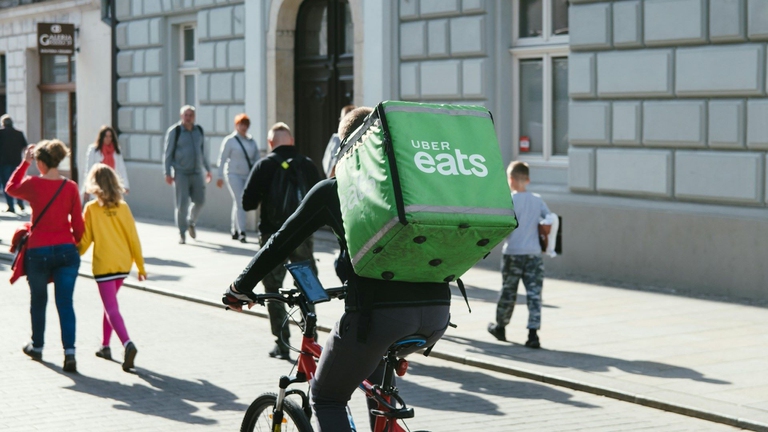https://www.lifegate.it/direttiva-rider-nuove-regole-per-il-lavoro-legato-a-piattaforme-digitali
- |
After a complicated process that began at the end of 2021, the so-called is finally in the home stretch rider directive, fundamental for the protection of quasi 30 million digital platform workers in Europe.A number expected to grow in the coming years, which includes not just people employed in delivery but also for example in the cleaning, care and online consultancy sectors.Professional figures that I respond to gig economy, a model based on on-call, occasional and temporary work.

Rider directive, new rules for the use of algorithms
THE'March 11th the Ministers of Employment and Social Affairs of the European Union (EU) have confirmed the provisional agreement on the directive on digital platform work reached on 8 February 2024 between the Presidency of the Council and the negotiators of the European Parliament.It is absolutely about the first legal act of the EU which has the objective of regulate and improve algorithmic management in the workplace.
The new rules will make the use of algorithms clearer and recognize it employee status for those who work on platforms like Uber and Deliveroo.The agreement also ensures that people are duly informed about the use of automated monitoring and decision-making systems regarding, among other things, their employment, their working conditions and their earnings.As for the automated decisions, these they cannot be taken without human supervision and evaluation.Additionally, staff will have the right to obtain an explanation and review of such decisions.So let's talk about useful measures too to combat fictitious self-employment and to get out of the "piece rate blackmail" that has weighed on the conditions of many riders in recent years.
Cases and sentences that have set a precedent in Italy
In this path towards a fairer regulation also for the protection of the staff food delivery, we cannot forget the case of in Italy Sebastian Galassi, 26-year-old student-delivery boy tragically hit by a person driving an SUV in Florence, in October 2022, while making a delivery on a scooter for Glovo, the Spanish multinational delivery company.The day after his death, a message arrived on his cell phone dismissal message for inappropriate conduct:an automatic message sent from the app, to inform you that due to the missed delivery the employment relationship would be terminated.The company apologized to the family members who made the fact known, but the event highlighted a problem regarding the “dehumanization” of the management of the employment relationship, in addition to the problem of safety on the road and the method of making deliveries in the shortest possible time, working on a piece rate basis.
Another important achievement was the sentence dated 29 November 2022 of the court of Milan which he forced Glovo to hire a delivery boy whose contract had been torn up for an alleged illegitimate act committed during the shift.Thanks to the ruling, it was imposed on the platform of reinstate the worker, a migrant of around 30 years of age, improving his conditions, with a fixed full-time contract, an improved classification (from that of logistics to a trade contract) and with the recognition of the equivalent of the year not worked.
Rider Directive, next steps
Now only one last formal step is missing, that is final vote in Strasbourg by the European Parliament in April.Once the formal stages of adoption are completed, the 27 Member States will have two years time to implement the provisions of the Directive in national legislation.
